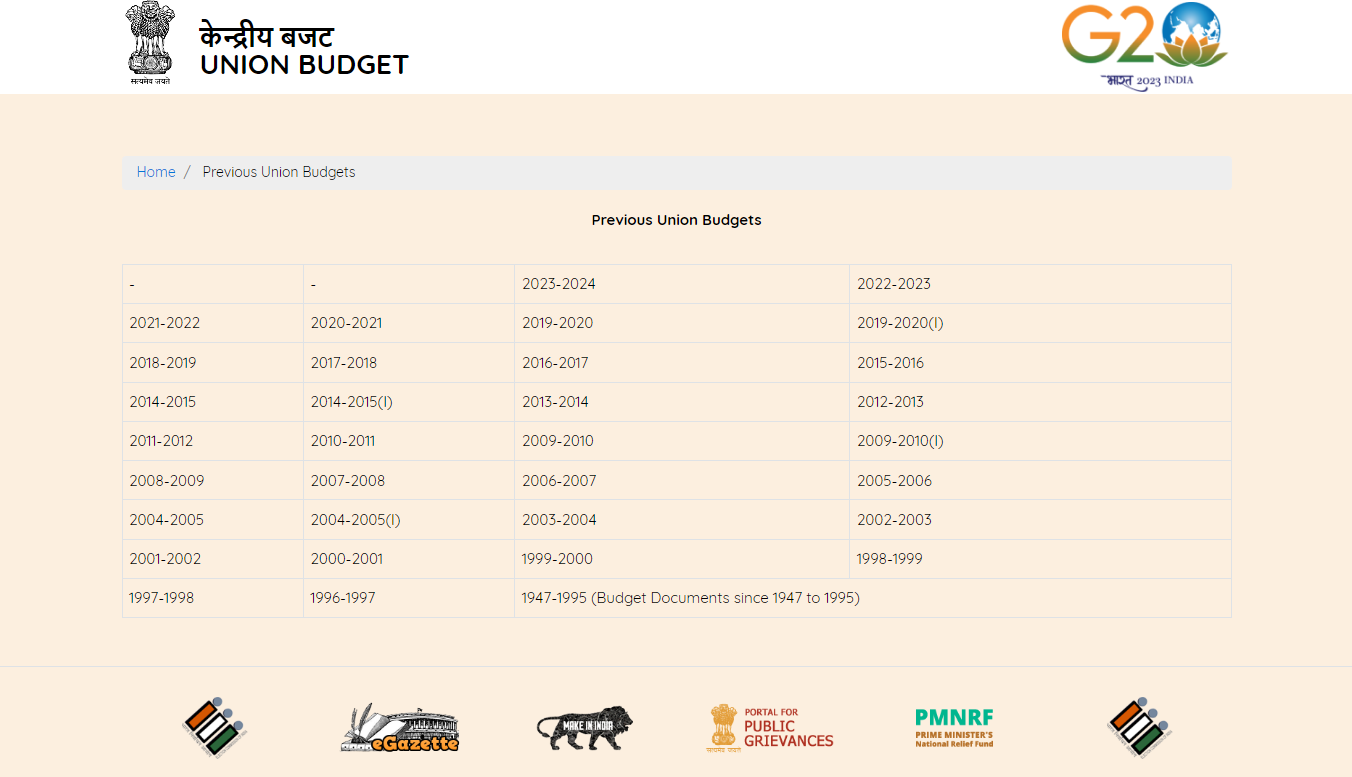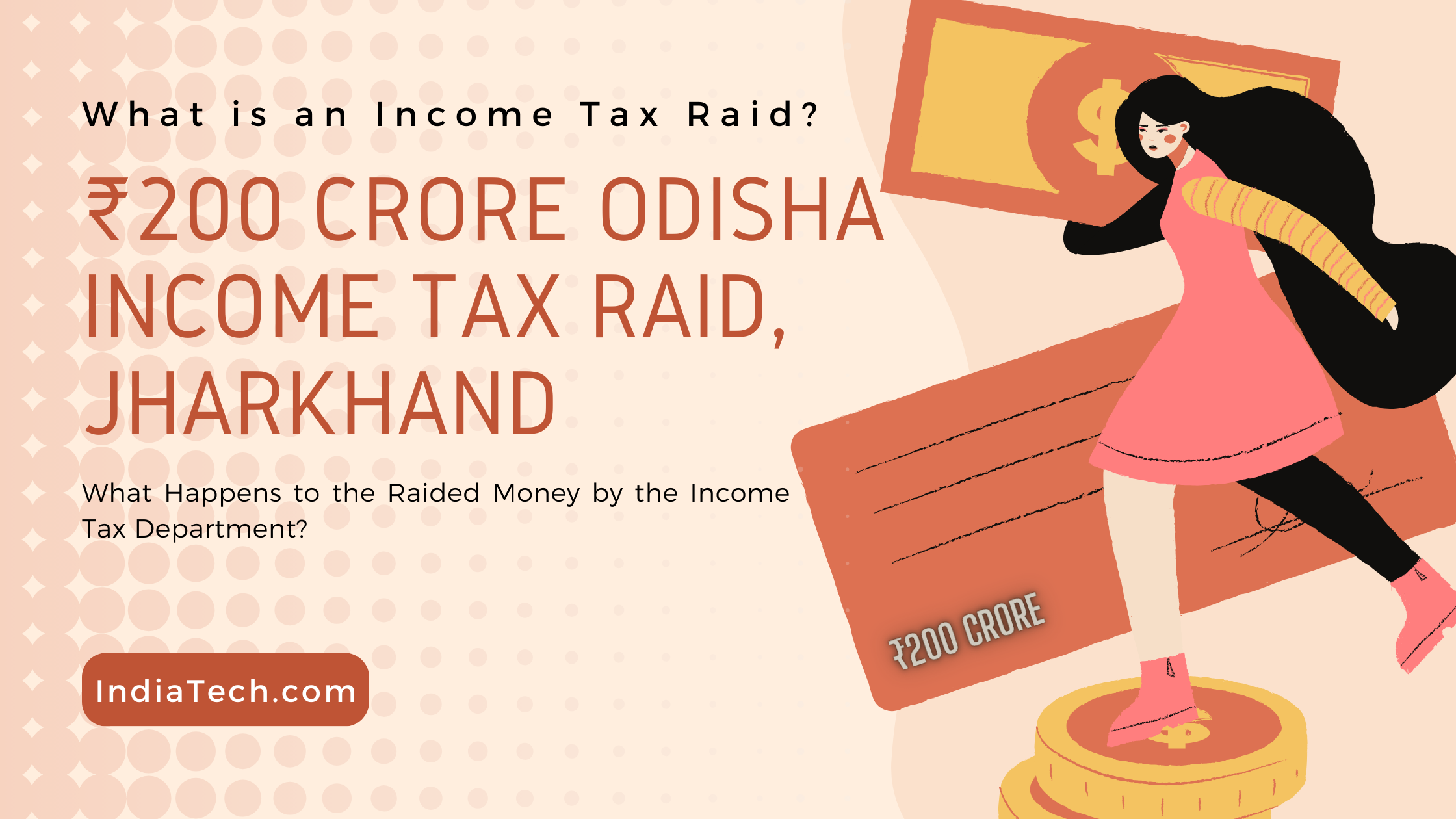Table of contents
Introduction to Emergency Funds
An emergency fund is a financial safety net designed to help you navigate unexpected expenses or income loss without resorting to debt or compromising your long-term financial goals. In today's fast-paced world, financial uncertainties and emergencies can arise anytime. Having a financial buffer can make all the difference in managing such situations with minimal stress.

For young Indian professionals and entrepreneurs working in metropolitan cities like Delhi, Bangalore, Pune, Hyderabad, Mumbai, and Chandigarh, building an emergency fund should be a priority as it offers financial security and peace of mind.
This comprehensive guide will explore the various aspects of building an emergency fund for financial security in India. We'll discuss the importance of having an emergency fund and provide practical tips on determining the right size for your fund and selecting the most appropriate savings account or investment vehicle. Throughout the article, we'll provide real-life examples relevant to our target audience of young professionals and business owners, ensuring the information is relatable and applicable to your unique financial situation.
To begin, let's look at the concept of an emergency fund and why it is essential for every individual, especially those in the early stages of their careers or running their businesses. An emergency fund is a financial cushion that can be used in times of crisis, such as job loss, unexpected medical expenses, or urgent home repairs. By having a dedicated account set aside for emergencies, you can avoid dipping into your savings, incurring high-interest debt, or disrupting your long-term financial plans.
Creating an emergency fund requires discipline and a commitment to saving, but the benefits outweigh the effort. By setting aside a portion of your monthly income, you can gradually build a reserve that will provide much-needed financial stability during challenging times. Moreover, an emergency fund can help you avoid making impulsive financial decisions that may negatively impact your future financial health.
As you progress through this guide, you'll gain a deeper understanding of the various aspects of emergency funds, including factors to consider when determining the size of your fund, tips for building your fund quickly, and strategies for balancing emergency savings with other financial goals. We'll also discuss the importance of managing and maintaining your emergency fund, when to use it, and how to rebuild it after a financial setback. Finally, we'll examine how to adjust your emergency fund as your financial situation evolves, ensuring it provides a strong safety net throughout your financial journey.
By the end of this guide, you'll be well-equipped with the knowledge and tools needed to establish and manage an emergency fund that meets your unique needs and circumstances, providing financial security and peace of mind for years to come.
Why Having an Emergency Fund is Important

An emergency fund is crucial for several reasons, particularly for young professionals and entrepreneurs in Indian metropolitan cities like Delhi, Bangalore, Pune, Hyderabad, and Chandigarh. This section will discuss the key benefits of having an emergency fund and why it should be prioritized in your personal finance planning.
a. Financial Stability:
An emergency fund provides a cushion that helps you withstand unforeseen expenses, such as medical emergencies, car repairs, or sudden job loss. This safety net ensures you can cover these expenses without resorting to high-interest debt or tapping into your long-term savings, which could jeopardize your financial goals.
b. Reduces Stress:
Unexpected financial burdens can be incredibly stressful. Having an emergency fund in place can significantly reduce the anxiety associated with financial emergencies, allowing you to focus on resolving the issue instead of worrying about how to pay for it.
c. Avoids High-Interest Debt:
Individuals often turn to credit cards, personal loans, or other high-interest debt options without an emergency fund to cover unexpected expenses. This can lead to a vicious cycle of debt and negatively impact your credit score. An emergency fund enables you to avoid these financial pitfalls and maintain a healthy credit history.
d. Enhances Financial Discipline:
Building an emergency fund requires consistent saving, promoting financial discipline, and promoting healthy money management habits. As you develop a regular savings habit, you'll be more inclined to prioritize and achieve other financial goals, such as saving for a down payment on a house or funding your child's education.
e. Provides Flexibility:
An emergency fund allows you to manage unexpected expenses without disrupting your long-term plans. This flexibility allows you to navigate life's uncertainties with greater confidence and peace of mind, knowing that you have a safety net in place should the need arise.
f. Supports Entrepreneurial Endeavors:
An emergency fund is particularly important for entrepreneurs and small business owners, as it offers a financial buffer during the fluctuating income or unforeseen business expenses. This added layer of financial security can make all the difference in weathering the ups and downs of running a business.
As we've discussed, having an emergency fund is essential for various reasons. In the following sections, we'll delve into the practical aspects of building and maintaining an emergency fund tailored to your unique financial situation. We will incorporate real-life examples relevant to young professionals and entrepreneurs in India.
We'll also provide insights from our previously published articles, such as Investing in Mutual Funds for Beginners in India, 43 Tips on how to save money in India (in 2023!), to help you make informed decisions and achieve financial security.
How Much Should You Save in Your Emergency Fund
Determining the right amount to save in your emergency fund is crucial to personal financial planning. In this section, we'll discuss the factors to consider when deciding how much to save and provide practical advice for young professionals and entrepreneurs in India.
a. Assess your monthly expenses:
Begin by calculating your monthly living expenses, including rent, utilities, groceries, transportation, insurance premiums, and loan payments. This will give you a clear picture of your essential outgoings and help you understand how much you'll need to cover in an emergency.
b. Consider your job stability:
Job stability plays a crucial role in determining the size of your emergency fund. You may require a smaller emergency fund if you have a stable job with a reliable income or work in an industry with low unemployment. On the other hand, if you're self-employed, a freelancer, or work in an industry with high volatility, you should aim for a larger emergency fund.
c. Account for dependents:
If you have dependents, such as a spouse, children, or elderly parents, you may need a larger emergency fund to cover their needs in the event of an unexpected expense or loss of income.
d. Factor in your existing savings and investments:
Your current savings and investments can also influence the size of your emergency fund. Suppose you have a significant amount invested in liquid assets, such as fixed deposits or debt mutual funds. In that case, you may require a smaller emergency fund as these assets can be easily converted to cash in an emergency.
e. Follow the 3-6 months rule:
A general rule of thumb is to save enough to cover your emergency fund's three to six months' living expenses. This provides a comfortable buffer to handle most financial emergencies. However, the exact amount will vary depending on your circumstances and risk tolerance.
f. Adjust for inflation:
As the cost of living in cities like Delhi, Bangalore, Pune, Hyderabad, and Chandigarh continues to rise, it's essential to regularly reassess your emergency fund to ensure it keeps pace with inflation. This will help maintain your financial security in the long term.
g. Review and revise:
Regularly review your emergency fund to ensure it remains adequate for your needs. Factors such as changes in your job, income, or family situation may require you to adjust the size of your emergency fund accordingly.
Considering these factors and tailoring your emergency fund to your unique circumstances, you can build a solid financial foundation to weather life's unexpected expenses. In the upcoming sections, we'll explore how to choose the right savings account or investment vehicle for your emergency fund and provide tips for building your fund quickly.
Factors to Consider When Determining the Size of Your Emergency Fund

Now that you know how much to save in your emergency fund, it's important to consider additional factors that may affect the size of your fund. This section will discuss these factors and guide young professionals and entrepreneurs in India.
a. Cost of living in your city:
The cost of living varies across cities like Delhi, Bangalore, Pune, Hyderabad, and Chandigarh. If you live in an area with a high cost of living, you may need to save more in your emergency fund to cover your expenses in an emergency.
b. Health insurance coverage:
Evaluate your health insurance coverage and consider if it's sufficient to cover unexpected medical expenses. If you're underinsured or lack coverage, you'll need a larger emergency fund to cover potential healthcare costs.
c. Emergency fund for business owners:
If you're an entrepreneur or small business owner, it's crucial to maintain a separate emergency fund for your business expenses. This will help you manage cash flow disruptions or unexpected costs without jeopardizing your finances.
d. Financial goals and priorities:
Consider your other financial goals, such as buying a home, saving for retirement, or funding your children's education. Balancing these goals with your emergency fund savings can be challenging but essential for maintaining financial stability.
e. Debt levels:
If you have high-interest debt, such as credit card or personal loans, you may want to prioritize paying off this debt before fully funding your emergency fund. However, it's still crucial to maintain a small emergency fund to avoid incurring additional debt in the event of an unexpected expense.
f. Liquidity needs:
Evaluate your liquidity needs and ensure that your emergency fund is easily accessible in an emergency. This may require you to keep a portion of your fund in a savings account, while the remainder can be invested in more lucrative but liquid assets like short-term debt mutual funds or fixed deposits.
g. Risk tolerance:
Your risk tolerance will also influence the size of your emergency fund. You may feel more comfortable with a larger emergency fund if you're more risk-averse. Conversely, if you're more comfortable with risk, you might opt for a smaller emergency fund and allocate more funds toward investments.
Considering these factors, you can build an emergency fund tailored to your unique needs and circumstances. In the next sections, we'll discuss choosing the right savings account or investment vehicle for your emergency fund and provide tips for building your fund quickly.
Choosing the Right Savings Account or Investment Vehicle for Your Emergency Fund

Your emergency fund must be easily accessible and relatively safe from market fluctuations. This section will explore various savings accounts and investment vehicles suitable for emergency funds and guide young professionals and entrepreneurs in India.
a. Savings account:
A savings account is a simple, low-risk option for storing your emergency fund. Look for a high-yield savings account with a competitive interest rate, minimal fees, and online access for easy withdrawals in an emergency.
b. Fixed deposits:
Fixed deposits (FDs) offer higher interest rates than regular savings accounts and can be a suitable option for a portion of your emergency fund. Choose short-term FDs with a maturity period of 3-6 months for better liquidity.
c. Liquid mutual funds:
Liquid mutual funds invest in short-term debt instruments and are known for their low risk and high liquidity. They can be a good option for parking your emergency fund while earning better returns than a regular savings account. Choose funds with a low expense ratio and a strong track record.
d. Ultra-short-term debt funds:
Like liquid mutual funds, ultra-short-term debt funds invest in short-term debt securities with slightly longer maturity periods. These funds offer better returns than savings accounts but may carry marginally higher risk. Opt for funds with a low expense ratio and a solid performance history.
e. Sweep-in fixed deposit accounts:
Some banks offer sweep-in fixed deposit accounts that combine the features of a savings account and a fixed deposit. Any amount above a certain threshold in your savings account is automatically transferred to a fixed deposit, earning higher interest rates. In an emergency, you can withdraw funds without breaking the entire fixed deposit.
When selecting the right option for your emergency fund, consider factors like liquidity, risk, and potential returns. You can also diversify your emergency fund across different investment vehicles to optimize returns while maintaining easy access to your funds.
In the next sections, we'll provide tips for building your emergency fund quickly and discuss balancing emergency fund savings with other financial goals.
Tips for Building Your Emergency Fund Quickly
Building an emergency fund is a crucial step toward financial security, but it can be challenging to accumulate enough savings, especially for young professionals and entrepreneurs in India. Here are some practical tips to help you build your emergency fund quickly:
a. Set a clear goal:
Determine the amount you need to save in your emergency fund based on your expenses and financial situation. A clear goal will motivate you to save consistently and track your progress.
b. Automate your savings:
Set up monthly automatic transfers from your salary account to your emergency fund account. This will ensure consistent savings and help you avoid the temptation to spend money on non-essential items.
c. Cut down on discretionary expenses:
Review your monthly expenses and identify areas where you can cut back, such as eating out, entertainment, and shopping. Redirect the money saved towards your emergency fund.
d. Increase your income:
Look for additional sources of income, such as freelancing, part-time jobs, or side hustles. This extra income can be directed towards your emergency fund and help you reach your goal faster.
e. Save windfalls and bonuses:
Whenever you receive a windfall, such as a bonus, tax refund, or inheritance, allocate a portion to your emergency fund.
f. Regularly review your progress:
Monitor your emergency fund growth and adjust your savings strategy as needed. Celebrate milestones and stay motivated to achieve your goal.
In the following sections, we'll discuss balancing emergency fund savings with other financial goals, managing and maintaining your emergency fund, and when to use it. Stay tuned for more personal finance tips and insights tailored for young professionals and entrepreneurs in India.
Balancing Emergency Fund Savings with Other Financial Goals
While building an emergency fund is essential, balancing saving for emergencies and pursuing other financial goals is crucial. Here are some strategies to help young professionals and entrepreneurs in India manage their finances effectively:
a. Prioritize your financial goals:
List all your financial goals, including retirement savings, paying off debt, buying a home, or starting a business. Assign a priority level to each goal based on its importance and urgency.
b. Create a budget:
Develop a monthly budget that allocates a portion of your income towards your emergency fund, other savings, and investments. Make sure to allocate funds for essential expenses, such as housing, food, utilities, and discretionary spending.
c. Pay off high-interest debt:
Focus on paying off high-interest debts, such as credit card balances, as they can hinder your ability to save and invest. Consider consolidating or refinancing your debt to lower your interest rate and reduce monthly payments.
d. Invest for long-term growth:
Allocate a portion of your income towards long-term investments, such as mutual funds, stocks, or retirement accounts. This will help you grow your wealth over time and achieve your financial goals. For guidance on investing in mutual funds, refer to our article on Investing in Mutual Funds for Beginners in India.
e. Review and adjust your financial plan:
Regularly review your financial plan and adjust your savings and investment strategy as needed. Keep track of your progress towards your financial goals and make necessary changes to stay on track.
f. Consult a financial advisor:
If you're unsure how to balance your emergency fund savings with other financial goals, consider seeking the advice of a financial advisor. They can help you create a tailored financial plan that aligns with your needs, risk tolerance, and financial objectives.
In the next sections, we'll discuss managing and maintaining your emergency fund, when to use it, and rebuilding it after a financial setback. Stay tuned for more personal finance insights and advice tailored to young professionals and entrepreneurs in India.
How to Manage and Maintain Your Emergency Fund

Effectively managing and maintaining your emergency fund is crucial for ensuring financial security in case of unexpected expenses. Here are some tips for young professionals and entrepreneurs in India:
a. Keep it accessible:
Your emergency fund should be easily accessible in case of unexpected expenses. Consider keeping it in a savings account or a liquid mutual fund that allows quick withdrawals without penalties.
b. Separate it from daily spending:
To avoid dipping into your emergency fund for non-emergencies, keep it separate from your daily spending. This will help you maintain discipline and avoid using the fund for non-essential expenses.
c. Regularly review your emergency fund needs:
As your financial situation and expenses change, you must reassess the amount you need in your emergency fund. Update your savings goal accordingly to ensure you have adequate coverage in case of an emergency.
d. Monitor your account:
Regularly check your emergency fund account to ensure it's earning a competitive interest rate. If not, consider switching to a different account or investment vehicle that offers better returns while maintaining accessibility and low risk.
e. Stay disciplined:
Resist the temptation to use your emergency fund for non-emergency expenses. Remember that the fund's purpose is to provide financial security in case of unexpected events, and using it for other purposes can leave you vulnerable.
f. Revisit your budget:
If you find it challenging to maintain your emergency fund, review your budget and identify areas where you can cut back on spending or increase your income. This will help you stay on track with your savings goal.
In the upcoming sections, we'll discuss when to use your emergency fund, rebuild it after a financial setback, and adjust it as your financial situation changes. Stay tuned for more personal finance tips tailored for young professionals and entrepreneurs in India.
When to Use Your Emergency Fund

Knowing when to use your emergency fund is essential for maintaining financial stability. Here are some scenarios when young professionals and entrepreneurs in India should consider tapping into their emergency savings:
a. Job loss or reduced income:
Suppose you lose your job or experience a significant drop in income. In that case, your emergency fund can help cover essential living expenses while you search for new opportunities or adjust your budget.
b. Medical emergencies:
Unexpected medical expenses can put a strain on your finances. Your emergency fund can help cover medical bills, prescription, and other healthcare-related expenses during emergencies.
c. Car or home repairs:
If your car breaks down or your home requires urgent repairs, your emergency fund can help cover these costs without resorting to high-interest loans or credit card debt.
d. Family emergencies:
Your emergency fund can support family members facing financial difficulties or cover expenses related to a family crisis, such as a funeral or emergency travel.
e. Natural disasters:
In a natural disaster, your emergency fund can help cover evacuation expenses, temporary housing, or property damage not covered by insurance.
f. Unexpected tax liabilities:
If you're faced with an unexpected tax bill, your emergency fund can help you meet your tax obligations without incurring penalties or interest charges.
It's crucial to remember that your emergency fund should be used only for genuine emergencies and not for discretionary spending or planned expenses. In the next sections, we'll discuss rebuilding your emergency fund after a financial setback and adjusting it as your financial situation changes. Stay tuned for more personal finance tips tailored for young professionals and entrepreneurs in India.
Rebuilding Your Emergency Fund After a Financial Setback

After using your emergency fund to cover unexpected expenses, it's crucial to rebuild it to ensure you're prepared for future financial emergencies. Here are some tips for young professionals and entrepreneurs in India to replenish their emergency savings:
a. Reassess your emergency fund needs:
Review your financial situation and determine the new amount you need to save in your emergency fund. This will help you set a clear savings goal and focus on rebuilding your fund.
b. Create a plan:
Develop a plan to rebuild your emergency fund, including setting a specific timeline for achieving your savings goal. This will help you stay accountable and motivated to reach your target.
c. Prioritize emergency fund savings:
As you work on rebuilding your emergency fund, prioritize these savings over other non-essential expenses. You may need to cut back on discretionary spending or find ways to increase your income temporarily to replenish your fund more quickly.
d. Automate your savings:
Set up automatic transfers from your primary bank account to your emergency fund to ensure consistent savings. Automating your savings will help you stay on track with your goal and make rebuilding your fund easier.
e. Stay disciplined:
It's essential to remain disciplined when rebuilding your emergency fund. Resist the temptation to use the fund for non-emergency expenses and stay focused on your goal.
f. Learn from your experience:
Analyze the events that led to using your emergency fund and determine if there are ways to prevent or mitigate similar situations in the future. This may involve adjusting your budget, getting additional insurance coverage, or taking other preventative measures.
In the upcoming sections, we'll discuss adjusting your emergency fund as your financial situation changes and summarizing key takeaways. Stay tuned for more personal finance tips tailored for young professionals and entrepreneurs in India.
Adjusting Your Emergency Fund as Your Financial Situation Changes

As your financial situation evolves, it's essential to reevaluate and adjust your emergency fund to ensure it continues to meet your needs. Young professionals and entrepreneurs in India should consider the following factors when reviewing their emergency fund:
a. Changes in living expenses:
As your living expenses increase or decrease due to moving to a new city, getting married, or starting a family, you should adjust your emergency fund to ensure it covers at least three to six months of your current expenses.
b. Changes in income:
Suppose your income changes significantly through a promotion, a new job, or a change in your business's financial performance. In that case, you should reassess your emergency fund needs and adjust your savings goal if necessary.
c. Changes in debt levels:
If you pay off high-interest debt or take on new debt, such as a mortgage or a business loan, you may need to adjust your emergency fund to reflect these changes in your financial obligations.
d. Changes in insurance coverage:
As your insurance coverage changes, including health, life, or property insurance, you should review your emergency fund to ensure it remains adequate in light of your new coverage levels.
e. Changes in financial goals:
If your financial goals evolve, such as planning for a major purchase, starting a business, or retiring early, you should reassess your emergency fund to ensure it aligns with your new objectives.
f. Regular reviews:
It's a good practice to review your emergency fund annually or whenever you experience significant life changes to ensure it remains appropriate for your current financial situation.
In the next section, we'll conclude with key takeaways for building and maintaining an emergency fund for financial security in India. Stay tuned for more personal finance tips tailored for young professionals and entrepreneurs in India.
Conclusion and Key Takeaways
Building and maintaining an emergency fund is an essential aspect of financial security for young professionals and entrepreneurs in India. An emergency fund is a financial safety net, helping you navigate unexpected expenses without resorting to high-interest debt. Here are the key takeaways from this guide:
a. Understand the importance of having an emergency fund and how it can protect you from financial setbacks.
b. Determine the right size of your emergency fund based on your living expenses, financial obligations, and personal circumstances.
c. Choose the best savings account or investment vehicle for your emergency fund, considering liquidity, safety, and returns factors.
d. Develop a plan to build your emergency fund quickly, prioritizing savings and staying disciplined in your spending habits.
e. Balance your emergency fund savings with other financial goals, such as debt repayment, retirement planning, and investing.
f. Maintain and manage your emergency fund by monitoring its growth, using it only for emergencies, and replenishing it when needed.
g. Adjust your emergency fund as your financial situation changes, taking into account factors such as living expenses, income, debt levels, insurance coverage, and financial goals.
By following these steps and incorporating the insights from our other articles, such as investing in mutual funds, saving money, and starting an online business, young professionals and entrepreneurs in India can build a solid financial foundation and achieve long-term financial success.
For more personal finance advice tailored to your needs, be sure to explore our other articles on IndiaTech.com, like:
- Investing in Mutual Funds for Beginners in India - https://indiatech.com/mutual-funds-in-india/
- 43 Tips on How to Save Money in India (in 2023!) - https://indiatech.com/how-to-save-money-in-india/
- eCommerce in India: How to Build and Launch Your Online Store from Scratch - https://indiatech.com/ecommerce-in-india-how-to-launch-online-store/













